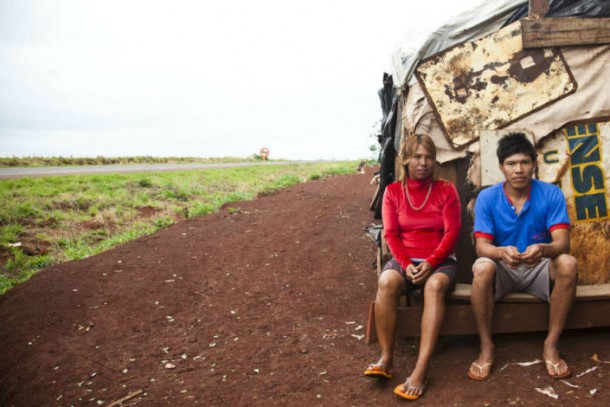[translations idioma=”ES” url=”https://archives.rgnn.org/2013/12/09/la-tragica-lucha-de-los-guaranies-en-brasil”]
BRAZIL. The Guarani are the most prodigious indigenous Brazilian people in the country, although they are also present in Argentina, Bolivia and Paraguay. They are divided into three groups; the Kaiowá, the Ñandeva, and the M’bya. They were one of the first cultures to have been contacted after the arrival of the Europeans. However they are known for something much more tragic, having an extremely high rate of suicide. Especially among their youth.
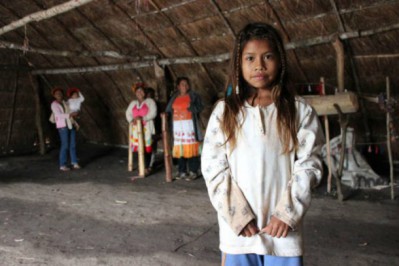
Pequeña niña guaraní | © Survival International
Since the year 2000, every week one Guarani commits suicide. The numbers show that a majority of the victims are between 15 and 29 years old. But the youngest was only nine years old. Last year alone, 56 Guarani took their own lives.
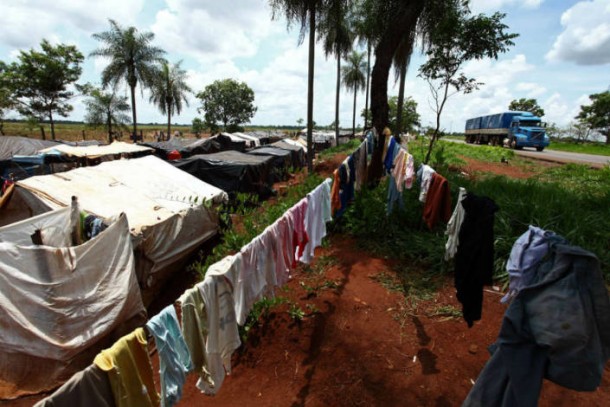
The Guarani live on the side of the highway / © Rodrigo Baleia/Survival
The main cause of these suicides is the condition in which this people has been forced to live. 400 years ago they inhabited a territory of more than 350,000 square kilometers. Today, their ancestral lands are being occupied by large cattle estates and vast plantations and they have been forced to settle on the sides of highways.
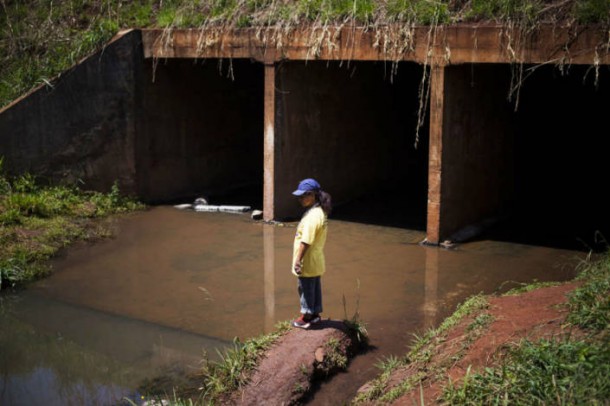
Drinkable water is limited / © Paul Patrick Borhaug / www.paulpatrick.net
An example of this situation is the Dourado reserve, where around 12,000 Guarani live on 3,000 hectares. The conditions of the encampments are overcrowded. Many barely have access to potable water. Malnutrition is also a problem. They have lost their lands and they cannot harvest food.
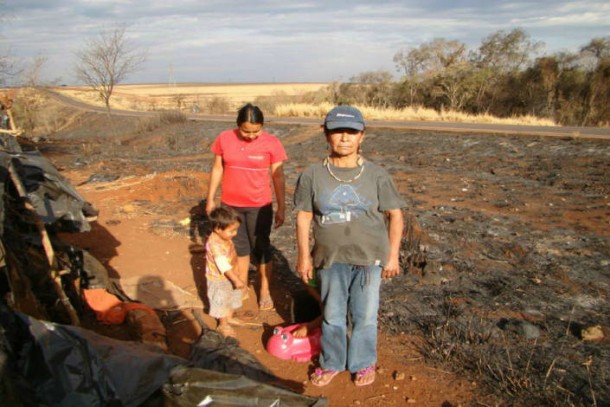
Guarani have to leave their families for temporary work / © Spensy Pimentel / Survival
The lack of resources obligates many Guarani to abandon their traditional life and to look for temporary employment on sugarcane plantations or in alcohol distilleries. Work conditions are terrible, and salaries minimal. This is compounded by the passage of much time away from their families and from their traditional lifestyles. Once in this situation the Guarani battle the difficult issues of alcoholism, they contract sexual diseases and conflict within the indigenous population rises.
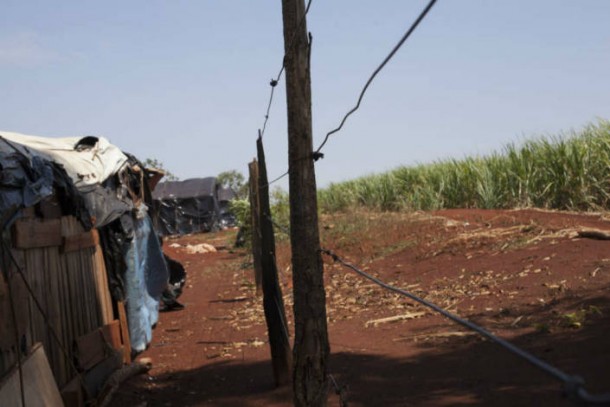
Many Guarani are imprisoned; they don’t understand the system they are in / © Paul Patrick Borhaug / www.paulpatrick.net
The violence into which these living conditions translate leads to the arrest and imprisonment of many Guarani. In this situation, the indigenous barely have access to legal representation and translators are not provided to them. Subsequently, their ability to defend themselves from the accusations against them is practically nullified in a system that they cannot manage to understand.
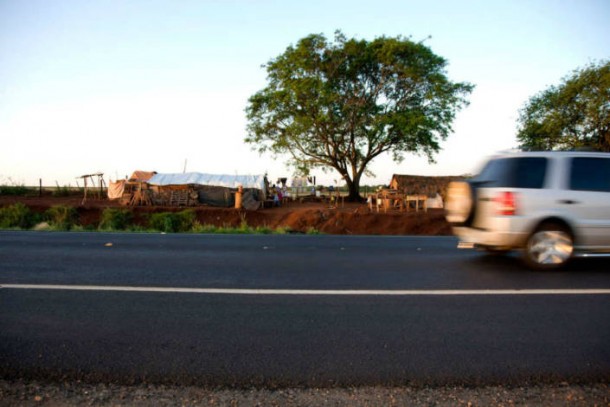
Their camps suffer violent attacks / © Survival International
To make matters worse, the Guarani are the victims of constant violent attacks from the owners of the plantations and cattle estates that currently occupy their lands. In fact, this year the Federal Public Ministry has requested the closure of Gaspem. This private security company is accused of working with a violent militia. They position themselves, armed, surrounding their encampments, they threaten them and they are suspected to have already killed several Guarani leaders.
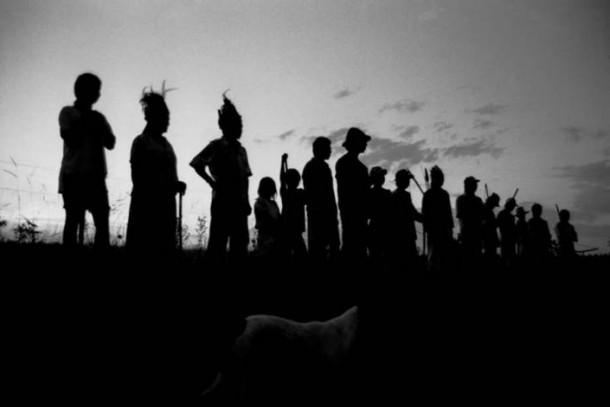
The Guarani fight to get their original lands back / © Simon Rawles
The Guarani have lost hope in light of the situation in which they live. Many of their youth don’t see an exit and commit suicide. Organizations like Survival International defend the notion that the solution is in the return of their lands, as Sarah Shenker, an expert on campaigns for the defense of the right of indigenous peoples, told us in an interview for ROOSTERGNN. In turn, the measures necessary to solve the problems that face the indigenous of Brazil do not advance in their implementation. For now, the Guarani struggle against reoccupations of territories that in the past were theirs.
Source for images and text: Survival International. The indigenous movement impulsed by Survival International helps indigenous people defind their lives, protect their lands and make decisions about their future.

